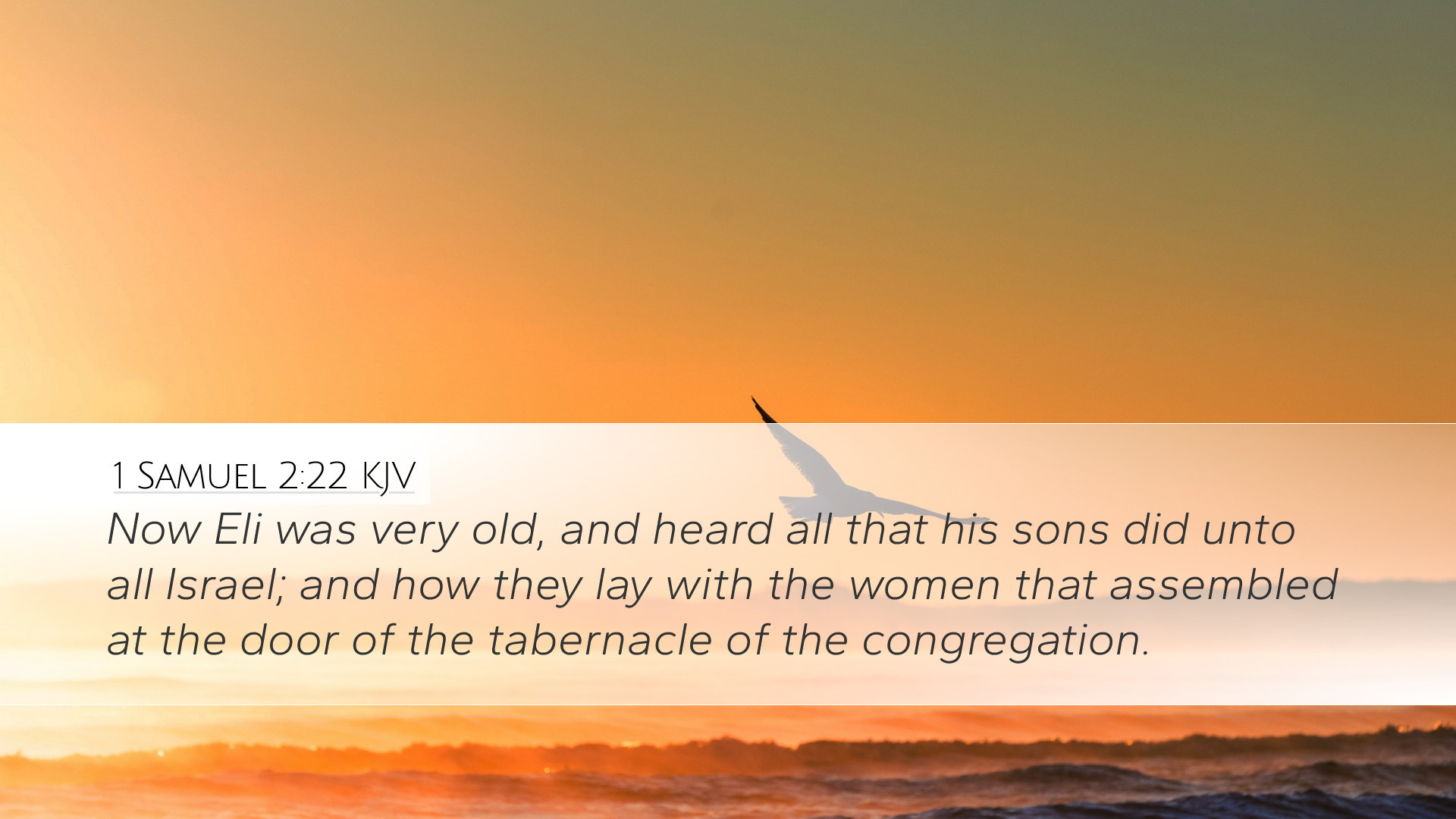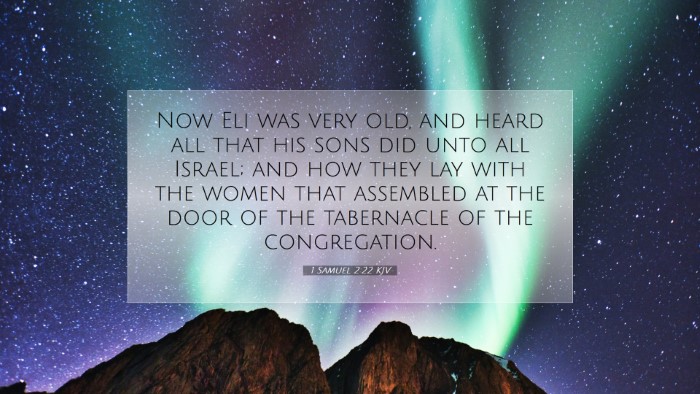Commentary on 1 Samuel 2:22
Verse Text: "Now Eli was very old, and he heard all that his sons did unto all Israel; and how they lay with the women that assembled at the door of the tabernacle of the congregation."
Introduction
This verse provides a crucial insight into the spiritual and moral decline of Israel during a pivotal time in its history. The actions of Eli's sons serve as a warning and highlight important themes concerning leadership, accountability, and the sanctity of worship.
Eli's Age and Condition
Matthew Henry's Commentary: Eli’s advanced age is mentioned to emphasize his diminishing capacity to lead and correct his sons. As a high priest, he was responsible for maintaining holiness in worship and guiding others in their relationship with God. His failing health resulted in a lack of discipline and oversight regarding his sons.
Albert Barnes' Notes: The reference to Eli being "very old" suggests that he had reached a stage where he might have been physically incapable of performing his duties adequately. Barnes implies that his age could have contributed to a negligence in vigilance regarding his sons’ misconduct.
The Actions of Eli's Sons
Adam Clarke's Commentary: Though Eli's sons were priests, their actions stand in stark contrast to the expected behavior of those set apart for serving God. Clarke highlights that their immorality and abuse of their priestly position not only disrespected God but also deeply impacted the congregation and tarnished the sanctity of the tabernacle.
Matthew Henry further elaborates: The sons of Eli "lay with the women" who were participating in religious gatherings, indicating a blatant disregard for the holiness of their calling and a gross violation of moral and ethical standards.
Spiritual Implications
The verse illustrates the severe consequences when spiritual leaders fail to uphold God's standards. The actions of Eli’s sons contributed to a broader moral decay in Israel. Their sins were not isolated incidences; they reflected a systemic issue within the spiritual leadership of Israel.
- Accountability: Leaders are held to a higher standard. The moral failings of those in positions of influence can lead to communal disillusionment and degradation of faith.
- Consequences of Negligence: Eli’s failure to correct his sons illustrates that neglecting one's responsibilities can have dire consequences, not just personally, but broadly for the community the leader serves.
Context of 1 Samuel
1 Samuel marks a transition from the period of judges to the establishment of monarchy in Israel. The presence of corrupt priests and leaders represents a turning point necessitating divine intervention, which ultimately leads to the appointment of Samuel and later, kings such as Saul and David.
This interaction paints a picture of the conflict between human depravity and divine intention, underscoring that God’s ultimate plan for His people will prevail despite human failures.
Lessons for Today
For pastors, students, theologians, and scholars, this passage serves as a powerful reminder of the need for integrity in ministry. It prompts questions regarding personal responsibility and the importance of accountability in leadership.
- Guarding Against Corruption: Vigilance must be maintained to prevent corruption within church leadership and ministry.
- The Role of Correction: Healthy church communities should involve loving correction and accountability, especially from leaders to their followers.
- Impact of Leadership Failures: The moral failure of leaders often leads to broader implications for their communities, making it critical for leaders to uphold the values they preach.
Conclusion
The account in 1 Samuel 2:22 is not merely a historical record of Eli and his sons but serves as a profound cautionary tale. It invites reflection on the responsibilities borne by those in ministry and leadership roles. The expectations set forth in Scripture call leaders to a higher standard, echoing the truth that the character of leadership deeply affects the faith and moral compass of a community.
As we reflect on this verse, may we be inspired to uphold righteousness in our walk with God and strive to lead by example, fostering communities marked by integrity, holiness, and a deep reverence for the things of God.


